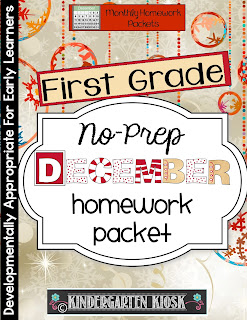Contents Include:
Christmas: A World Tour Part One
Part One of the “Around-The-World Tour” is filled with time-tested, quality activities that are strategically linked to Common Core Standards. It is divided into areas of literature, music, art, literacy, math, social studies, creative writing, word wall, and guided reading.
Part One Contents
Germany
Australia
Russia
Denmark
Spain
England
France
Africa
Canada
Greece
The activities include:
Literacy Activities
Australia: Surfing Santa: Segmenting Words
Russia: Land of the Sweets: Comprehension
France: Le Reveillon: Rhyming
Greece: St. Nicholas’ Boats: Naming Sounds
Italy: Befana’s Toys: Changing Initial Sounds to Make New Words
Math Activities
German Advent Calendar: Solving Problems Using Mental Math Strategies.
Denmark: Nisse The Elf: Subtraction
Africa: Candle, Candle: Decomposing Numbers
Canada: Tree Delivery: Making Combinations for 10
Spain: Spanish Shoes: Writing Numbers
England: Stocking Stuffing: Counting Objects For a Given Number
Songs and Fingerplays
Germany: O Tannenbaum
Australia: Six White Boomers
Denmark: Ten Little Gnomes
Spain: Navidad
Art Projects
Germany: Star Christmas Countdown
Russia: Nesting Dolls/Nutcracker
Denmark: Danish Christmas Heart
Spain: Balthazar & the Wise Men
Africa: Candle Art
Canada: Strip Christmas Tree
England: Christmas Cards
France: Christmas Santons
Greece: Christmas Fishing Boat
Kitchen
Australia: Pavlova
Writing
Country Word Walls
Guided Reading
Christmas Friends: Sight Word Reader
Class-Made Book: Around the World
Part Two of the “Around-The-World Tour”
is filled with time-tested, quality activities that are strategically linked to Common Core Standards. It is divided into areas of literature, music, art, literacy, math, social studies, creative writing, word wall, and guided reading.
Part Two Contents
India
Sweden
United States of America
Bahamas
Peru
Israel
Mexico
China
Italy
Scotland
The activities include:
Literacy Activities
USA: Decorate Away: Blending Phonemes
Bahamas: Junkanoo: Using Common Nouns in Complete Sentences
Israel: Identifying Letters or Decoding Words
Italy: Befana’s Toys: Changing Initial Sounds to Make New Words
Mexico: Poinsettia Race: Naming Letters Quickly
China: Christmas Lanterns: Writing Alphabet Letters
Math Activities
India: Diwali Day: Identifying and Comparing Numbers
Sweden: St. Lucia Day Deliveries: Composing Teen Numbers.
Peru: Fiesta de Navidad: Classifying and Sorting Objects
Scotland: The Mischievous Elves: Identifying Numbers
Songs and Fingerplays
India: Little Clay Lamp
Sweden: Lucia Day
USA: Ring Your Bells
Peru: Fiestas de Navidad
Art Projects
India: Clay Lamp
Sweden: Star Hats, St. Lucia Wreaths
USA: A Gift for Mom & Dad
Bahamas: Starfish Santa
Israel: My Star
Italy: My Ceppo
Mexico: Poinsettia Construct
Scotland: Shape Elf
Kitchen
Australia: Pavlova
Peru: Panettone
Writing
Country Word Walls
Guided Reading
Around The World: Sight Word Reader
Class-Made Book: Around the World
Part Three of the “Around-The-World Tour”
is filled with time-tested, quality activities that are strategically linked to Common Core Standards. It is divided into areas of literature, music, art, literacy, math, social studies, creative writing, word wall, and guided reading.
Part Three Contents
Eid
Kwanzaa
Hanukkah
Diwali
The activities include:
Literacy Lessons
Eid: Reading Sight Words
Eid Variation: Reading Alphabet letters
Happy Kwanzaa: Reading Nonsense Words
Spin the Dreidel: Naming Alphabet Letters
Spin the Dreidel Variation: Decoding CVC Words
Follow the Lamps: Blending and Segmenting Words
Art Projects
Eid: Crescent Moon
Kwanzaa: Kinara
Hanukkah: Star of David
Hanukkah: My Menorah
Diwali: Rangoli
Writing
Scrapbook Pages:
Eid
Kwanzaa
Hanukkah
Diwali
Songs/Fingerplays
Eid
Kwanzaa
The Dreidel Song
Diwali is Here
Part Four of the “Around-The-World Tour”
Part Four Contents
Two Scrapbook Cover Options: Color or Black and White
A Scrapbook Page for each of the 20 countries and 4 holidays Found in our Christmas World Tour Series. These pages are available at two levels.
A Culminating Scrapbook Activity to include in the scrapbook.
An original song adaptation of Let There Be Peace On Earth.
Part One Features:
Germany
Australia
Russia
Denmark
Spain
England
France
Africa
Canada
Greece
Part Two Features:
India
Sweden
United States of America
Bahamas
Peru
Israel
Mexico
China
Italy
Scotland
Part Three Features:
Eid
Kwanzaa
Hanukkah
Diwali











































